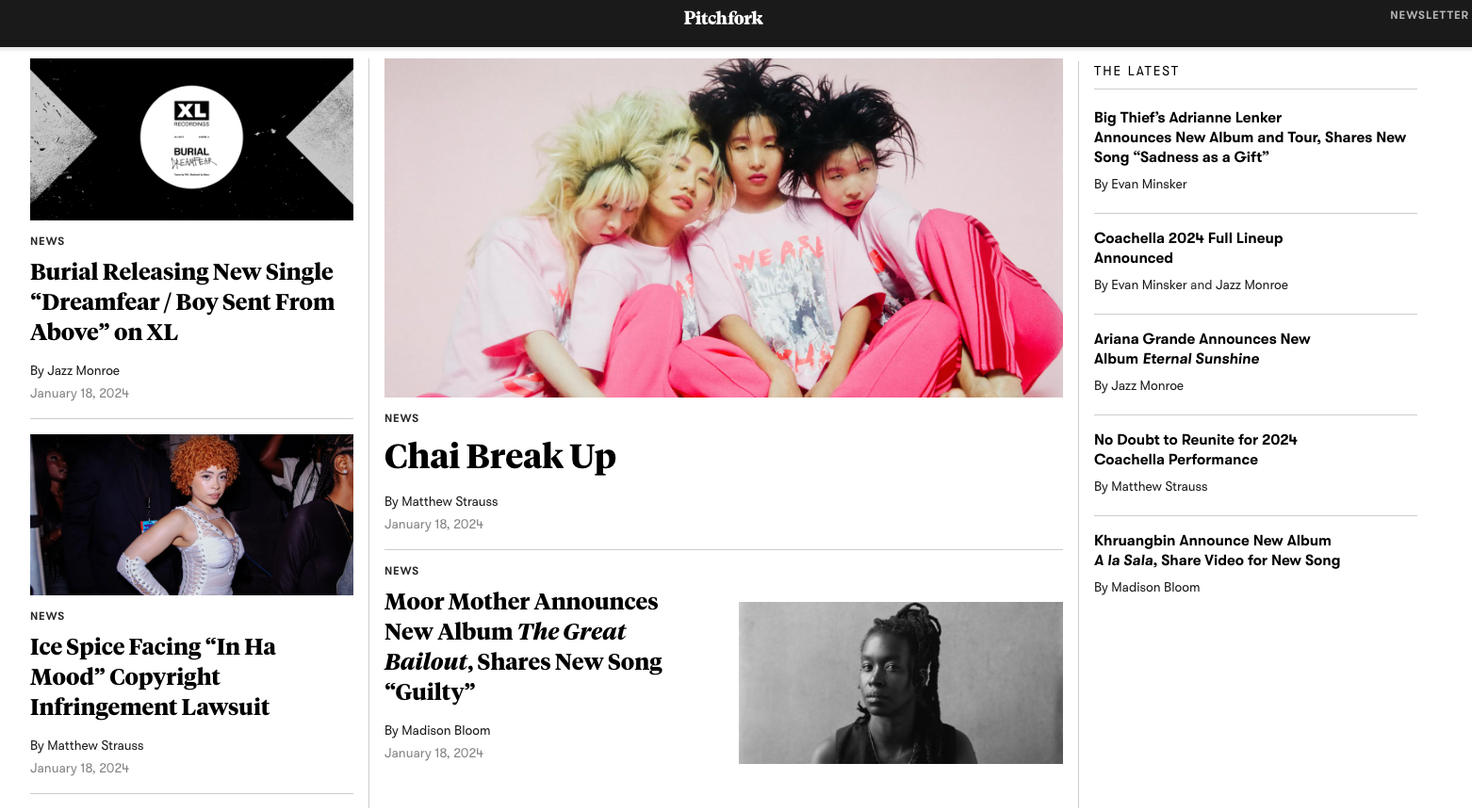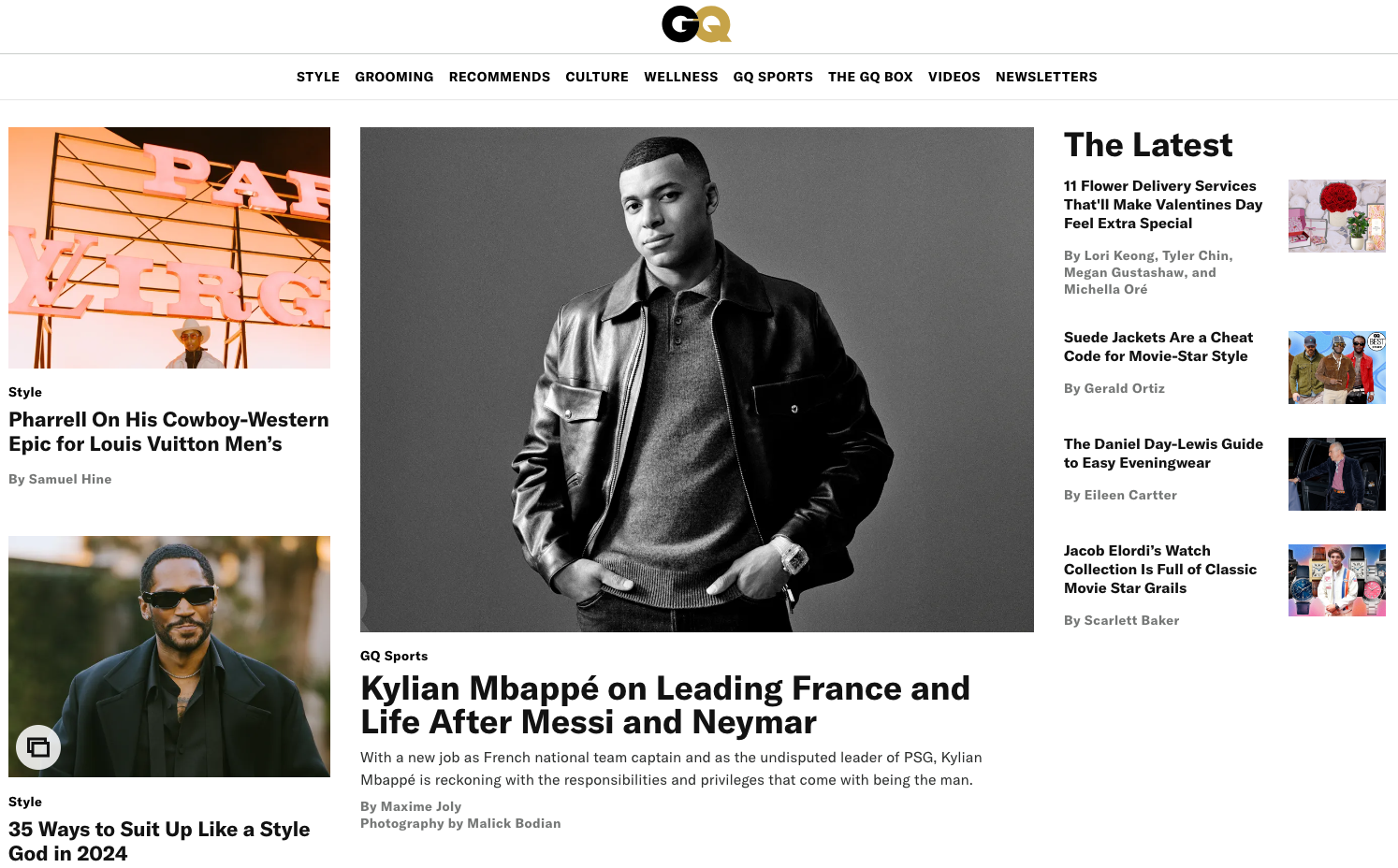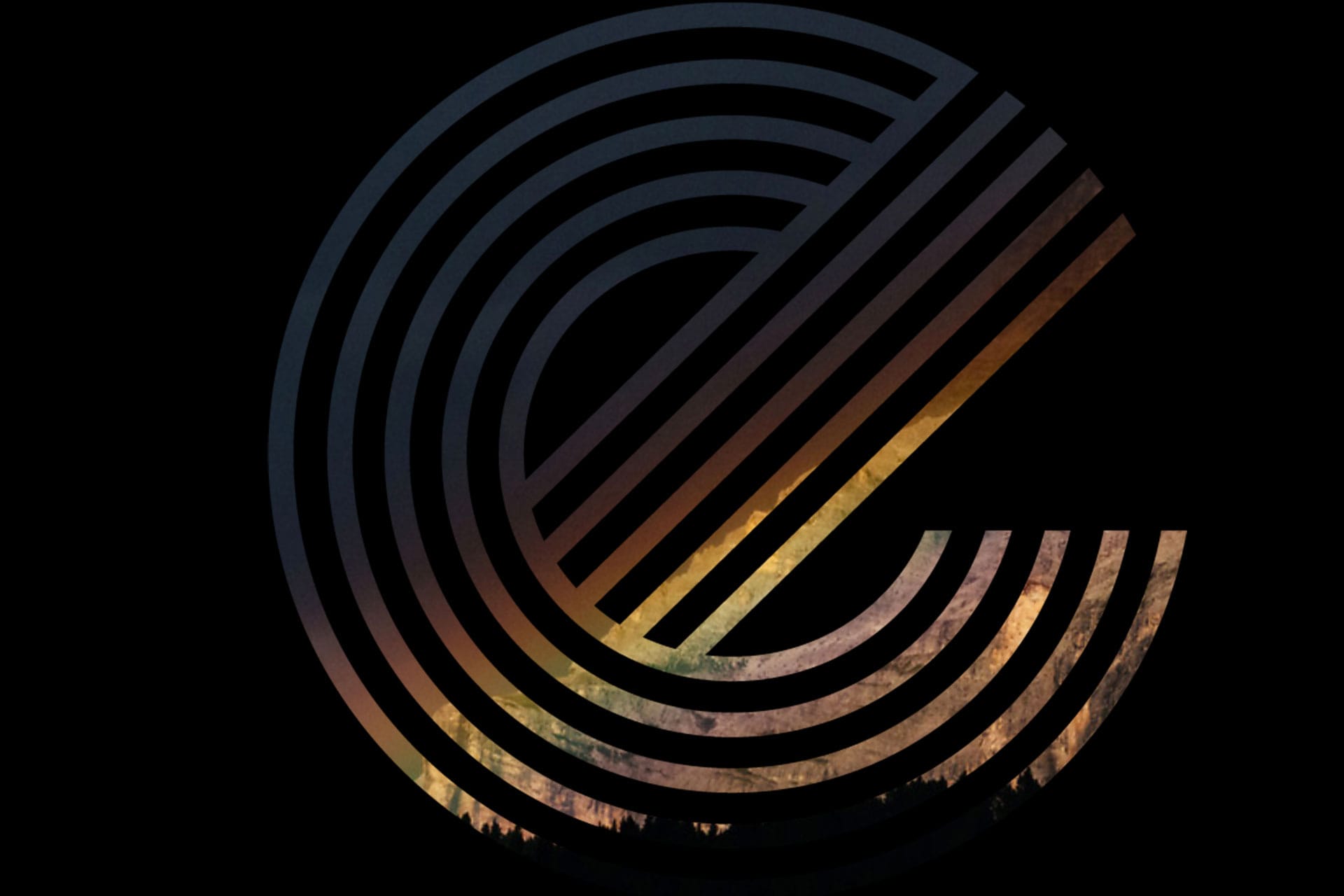For a certain corner of the online community (... mine), yesterday was a particularly bleak day. The influential music publication Pitchfork had just been hit with a swathe of lay-offs of key staff, including EIC Puja Patel and several other bigger names. As an internal letter from Condé Nast director Anna Wintour (yes, that Anna Wintour) explained, the higher-ups were “evolving our Pitchfork team structure by bringing the team into the GQ organisation”, likely setting up a future for one of the best-loved music websites as a vertical in a men’s magazine. Pitchfork, as the internet knows it, is in the process of becoming a homogenised, soulless shell.
Sound familiar?
Most of us at Escape Collective have been through a similar bloodletting – over a series of acquisitions, our former home CyclingTips was absorbed into Outside Inc., hit with layoffs of key staff in November 2022, spurring a mass exodus, before the publication was shuttered for good. The independent, member-funded website you’re reading today is the phoenix that hatched from those ashes.
As for Pitchfork, perhaps I should give a brief origin story. The publication was founded as a small daily music blog in 1996, making a mark with its uncompromising (sometimes catty) reviews scored in decimal points out of 10, before growing into the leading tastemaker of alternative music. A mention on Pitchfork was, in the declining days of the music press, a rare pathway to success for obscure artists – musicians like Bon Iver, Sufjan Stevens and Arcade Fire were championed in reviews, leading to mainstream acclaim, while most of the vanishingly-few albums that scored a perfect 10 hold up as classics today. Pitchfork was also influential in broadening horizons with regular metal columns and coverage of non-western artists, along with capital j-Journalism, publishing rigorously investigated pieces detailing alleged abusive conduct by powerful artists.

Around 2015, media giant Condé Nast – publisher of Vogue, The New Yorker, GQ, Vanity Fair and Wired, along with a swathe of other marquee titles – acquired Pitchfork, seeing opportunity, as Condé Nast’s chief digital officer put it, in bringing “a very passionate audience of millennial males into our roster”.
Those millennial males (again, guilty) were historically a mainstay of Pitchfork’s readership and staff, but a more diverse readership and roaming critical eye became the website’s calling card. Pitchfork had the power to make and break, to elevate and to celebrate – so much so that the publication’s name became shorthand for a certain type of earnest music listener and musical style. Everything from doom metal to Korean dream-pop to chart-topping hip-hop could be a Pitchfork-worthy subject, and usually was. There was a whole vibe, and it far transcended 'millennial males' alone – and the fact that Condé Nast didn't recognise that underlines how poorly suited they were to be the stewards of this thing.
As someone who wanted to be a music writer before I was ever writing about bikes, I feel the downfall of Pitchfork particularly keenly, with the added perspective of someone who’s been through this before. Something that a lot of creators poured a lot of time and emotional labour into has been erased by the number-crunchers of a bigger entity, because it was an imperfect fit for an editorial or commercial strategy playing out several rungs up the ladder.
So why was Pitchfork on that ladder to begin with? That links back to that quote from the Condé Nast guy earlier: to bring an audience into the fold. That’s not a decision made out of altruism or Pokémon-like ‘gotta get ‘em all’ completionism, but because that audience can then be sold. Condé Nast – whose revenue in 2022 was almost US $2 billion – could find fresh *synergies* in ad-sales for the music-nerd readership that they’d just bought the eyeballs of. Pitchfork cared deeply about music, but for Condé Nast it was a line-item on a big overarching spreadsheet. When the numbers stopped adding up, why not just bang a couple of those publications together and tighten up some operating expenses while you’re at it? Who cares if Pitchfork has its own distinct, long-curated cultural identity, when you can whack a bland paragraph-long War on Drugs review next to a roundup of the best khakis you can buy for under $100?

It’s a refrain that’s been playing out over media titles both niche and mainstream for years, and cycling is not immune. At Outside Inc. alone in the space of little more than a year, Beta, Peloton, VeloNews, and CyclingTips were all shuttered, with the staff that remained of the last two folded into Velo. I don’t know all that much about how it felt for the staff of most of those publications but I do know how it felt to be part of that experience at CyclingTips, and I see similarities in what’s happened at Pitchfork. It was something that we cared deeply about and built an audience of people who felt the same way, who came to our events and our in-person meet-ups, listened to our podcasts and expanded their knowledge and world-view through the lens of bikes. Neither publication pandered to its audience; both gave a fuck and wanted to foster an inclusive and informed dialogue around their respective passions.
It’s unclear how things will shake out at Pitchfork, but it’s hard to see this as anything other than the beginning of the end. As is often the case, it’s the community it served that will suffer. Small bands will have one less opportunity for global exposure, fewer festivals to play, less scope to turn passion into a liveable income. There will be fewer streams, fewer record labels, fewer audience members, fewer merch sales. The power in music will be increasingly concentrated in the hands of major labels and corporations, and considered intellectual thought about art will decrease a little more. It is, as a Washington Post writer put it, "a foul omen for the entirety of music journalism".
I never wrote for Pitchfork, and didn’t get a response to my one absolutely rock-solid pitch on the surprising musical gifts of Turkmenistan's ruling Berdimuhademov family. But I always wanted to. I loved that there was a place on the internet that could have been home to something like that – just in the way that when I started writing about bikes I only saw opportunity and growth in the digital pages of CyclingTips. I mourn that my feature on a dictator’s sneaky bangers will never appear on Pitchfork, but I celebrate that something like it could appear on Escape Collective, that I have a music podcast with colleagues from here, and that over on the EC Discord there’s a humming channel talking about everything from Carly Rae Jepsen to The Twilight Sad (and post-hardcore. Just so much post-hardcore, folks).
As we have learnt, there’s hope in independence – in recognising that there are thousands of readers that care deeply about what we do and are prepared to pay for it to keep our lights on. In some ways that’s a riskier path to walk than trying to slide under the radar at a media conglomerate, but it brings freedom and means that financial strain up the ladder needn't spell the end.
For all the hand wringing around Pitchfork’s demise and the undeniably bleak tale it tells about journalism’s future, perhaps the silver lining is this: the state of mourning means that an audience cared that it existed.
Did we do a good job with this story?






